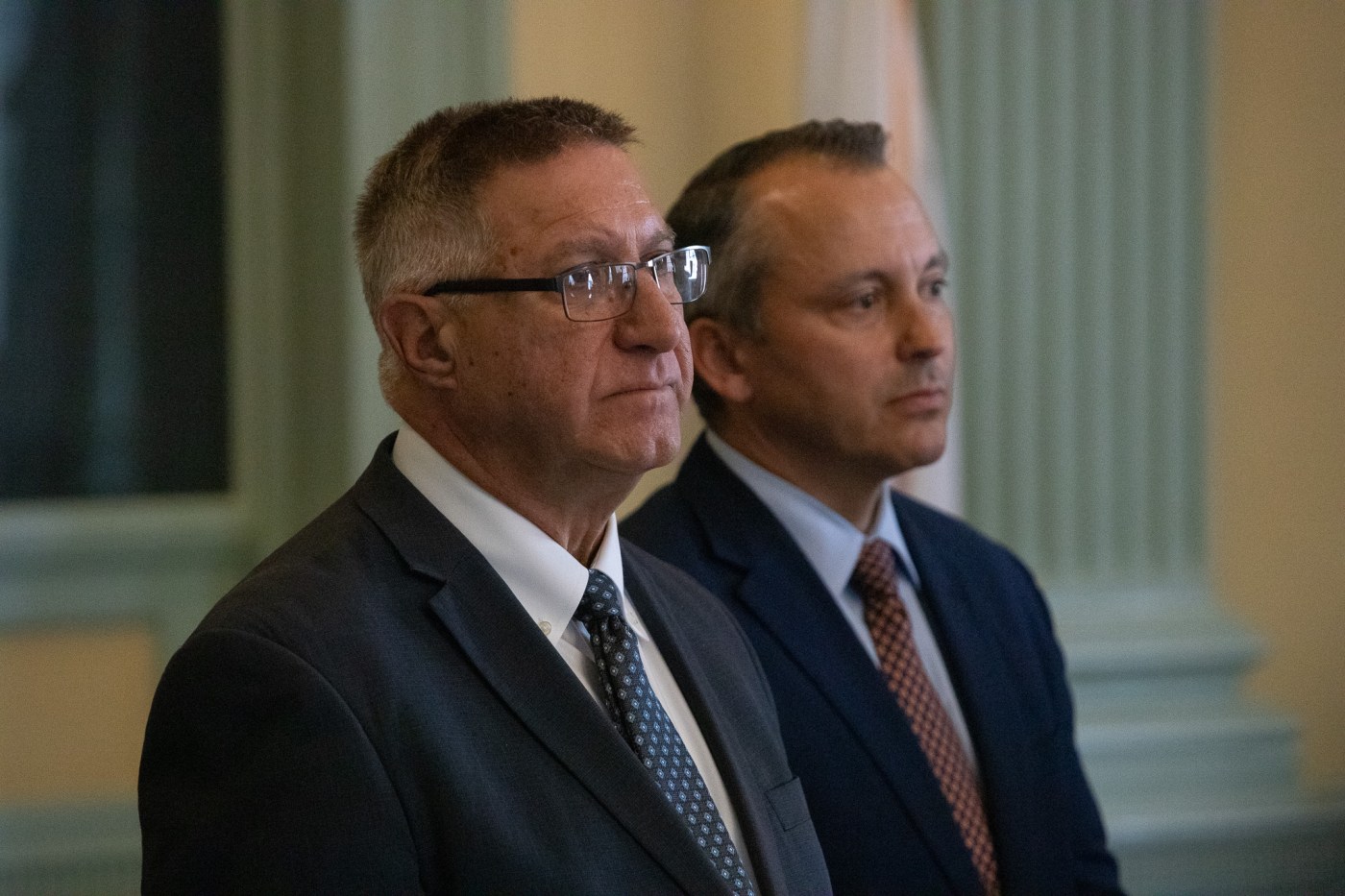
Massachusetts Democrats announce deal on controversial budget bill
Top Massachusetts Democrats negotiating a multi-billion supplemental budget that closes the books on fiscal year 2023 said Thursday morning they had reached a deal after weeks of closed-door negotiations.
Beacon Hill lawmakers broke for the holidays two weeks ago without an agreement on a $2.8 billion supplemental budget that included $250 million for the state’s struggling shelter system and nearly $400 million for more than 90 union contracts. Negotiations were kicked into informal sessions, where any one lawmakers has the power to block advancing policy.
Ways and Means Chairs Rep. Aaron Michlewitz and Sen. Michael Rodrigues said they reached an agreement on the budget in a brief statement but it was not immediately clear what survived private talks and if Democrats were potentially running into a Republican blockade.
“Our respective staffs are actively working to finalize remaining details and complete the work required to file a conference committee report. We anticipate a report being filed in the coming hours to ensure that the House and Senate can act on the report promptly and send it to the governor,” the two lawmakers said in a statement sent just after 10:30 a.m.
Just a day before, the top House Republican had blasted Democrats for not producing an agreement on the supplemental budget, which also included disaster relief funding for communities hard hit by extreme weather events this year.
House Minority Brad Jones, a North Reading Republican, called on both branches of the Legislature to reconvene in a full formal session to take up the bill, which allows the state comptroller to file an overdue financial report.
“If it is the intent of Democratic leadership to attempt to pass the $2.8 billion closeout budget in its entirety in an informal session, minus any meaningful policy reforms, we want to make it clear that we strongly oppose this option,” Jones said in a statement. “The fact that the speaker, Senate president and governor have been unable to reach consensus on the migrant issue shows that this is too contentious an issue to take up in an informal session.”
The supplemental budget was in the hands of a panel of six legislators — led by Michlewitz and Rodrigues — who had been negotiating behind closed doors and have not talked publicly about the nature of discussions.
Speaking to reporters Wednesday after an unrelated event, Senate President Karen Spilka said she is “optimistic” a deal could be reached this week but did not dive into details. A spokesperson for House Speaker Ronald Mariano said Wednesday negotiators “continue to talk and exchange proposals.”
There are clear differences in the House and Senate versions of the supplemental budget when it comes to money for the state’s emergency shelter system. Senators wanted to give Gov. Maura Healey more flexibility to spend $250 million in state dollars while the House proposed more requirements like mandating an overflow site for families waiting for shelter placement.
But are there areas of agreement, including the nearly $400 million for more than 90 contracts that include pay raises for tens of thousands of public employees. Republicans have pushed Democrats to split off the contract funding from the main proposal and advance it separately.
Spilka did not offer a clear indication of the path forward Wednesday.
“I’m hopeful that we can do the whole thing and get that done in the very near future,” the Ashland Democrat said.
Jones said splitting off the funding for union agreements would “allow the state to fulfill its commitment to funding these contracts, while leaving the more contentious provisions of the budget such as emergency shelter funding for newly arrived migrants in conference to be subject to further negotiations.”
“The House Republican Caucus believes this spending bill should receive a roll call vote in a full formal session, and not be passed in a sparsely attended informal session,” he said. ”The hard-working men and women who have been waiting months for their collectively bargained pay raises continue to show up for work, and the members of the House and Senate should be prepared to do the same and reconvene in a full formal session.”
This is a developing story…


